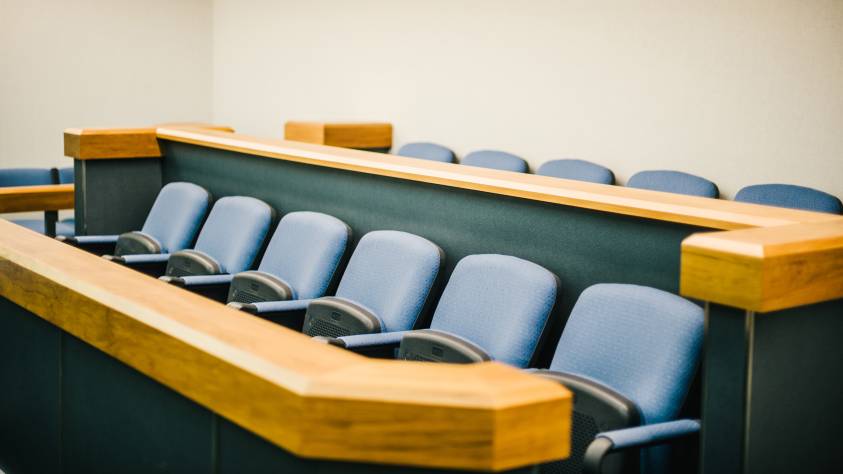Courts roundup 14 July - 20 July 2022

Decisions, proceedings and news from the courts in some common law jurisdictions in the past week.
The Law Society Registry database will be unavailable due to maintenance on Friday 26 April from 6pm until Saturday 27 April at 8am.

Gambhir v New Zealand Police [2022] NZHC 1582 (5 July 2022) Moore J
Successful application for leave to bring second appeal against conviction – G fined $170 and issued 35 demerit points for infringing speed limit through stretch of road works on State Highway 1 in Dome Valley – Said sign displaying temporary speed limit erroneously left out when site unattended -
HC said G’s argument raised matter of general importance as concerned interpreting Land Transport Rule: Setting of Speed Limits 2017 – G self-represented until counsel appeared in HC - Justices of the Peace and DC did not address interpretative issue as question of law - Miscarriage of justice could occur if argument not properly ventilated in HC - Application granted.
Snell v R [2022] NZHC 1627 (12 July 2022) Downs J
Sentencing – S imported and possessed 306 objectionable publications involving sexual abuse of children - Appealed two years and five months' imprisonment sentence - Extensive discussion of case law and legislative history - Four year starting point upheld – Five percent rehabilitation discount - Sentence reduced to two years two months' imprisonment.
Society of Composers, Authors and Music Publishers of Canada v. Entertainment Software Association [2022] SCC 30 (15 July 2022)
Unsuccessful appeal from Federal CA - In 2012, Parliament added s 2.4 (1.1) to Copyright Act 1997 through Copyright Modernization Act (CMA) to implement WIPO Treaty rights and protections – Amended s 3.1 (f) Copyright Act to clarify “communication of a work or other subject‑matter to the public by telecommunication” –
Copyright Board of Canada (Board) federal administrative body - Mandate included approving amount of royalties paid for some online services - Concurrently shared first instance jurisdiction over Copyright Act aspects with courts - Received submissions from different groups including Society of Composers, Authors and Music Publishers of Canada (SOCAN) –
SOCAN said “making works available” online attracted separate royalty for downloading or streaming same works later on - Would mean that, for example, online music services would have to pay royalty when posting song on Internet in way that allowed for individual user online access - Another royalty would be paid when song downloaded or streamed - Board agreed with SOCAN –
Federal CA overturned Board decision - Said new section did not create new and separate royalty for uploading work - SOCAN appealed to SC –
SC majority dismissed SOCAN’s appeal – Said Board’s interpretation inconsistent with law’s text and purpose and ran contrary to previous SC decisions in other copyright cases - Copyright Act did not exist solely to benefit authors - Board’s interpretation would also force users to pay more fees if accessed works on Internet instead of using other means, such as radio - Mattered what user received, not how user received it –
Test to determine how courts reviewed administrative decisions on legal issues, like Board’s here, set out in earlier SC case - Established categories of legal issues that should be reviewed under “correctness” standard - “Correctness” meant administrative decision on issue had to be only right answer in light of law and facts - Legal issue raised by Board’s decision here did not fall into existing “correctness” categories - However, previous case said new categories could be created in rare circumstances - SC created new category of “correctness” review and found Board’s decision wrong – Appeal dismissed.
Rodriguez Martinez (by his kin and next friend Martinez Hernandez) and anor v Chief Immigration Officer [2022] UKPC 29 (14 July 2022)
Partially successful appeal from Trinidad and Tobago CA – R and M Venezuelan nationals who entered Trinidad and Tobago by boat – R minor in mother, M’s, care - Said fled Venezuela due to humanitarian crisis occurring there -
M subject to deportation order and both detained in immigration detention - Both submitted Constitutional Motion contesting deportation, under which courts issued interim injunctions prohibiting Chief Immigration Officer from removing them from Trinidad and Tobago -
In January 2021, both applied for Habeas Corpus writ alleging that were unlawfully imprisoned - HC refused to order release - CA upheld decision –R and M appealed to PC –
PC made declaration that R unlawfully detained between 15 December 2020 and 16 March 2022 - Any question as to validity deportation order dated 16 March 2022 for Trinidad and Tobago courts to decide – PC also set aside CA ruling that were detained for reasonable period – But not appropriate for PC to form own assessment – Issue remitted to Trinidad and Tobago HC for further assessment – Appeal partly allowed.